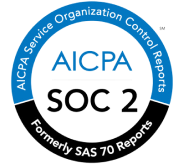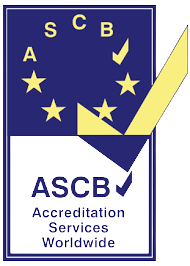Table of Content
Introduction
A skills-based talent strategy will be crucial for HRs to win a competitive edge when developing and nurturing talent. They can work with exceptional people eager to learn, implement new projects, and garner better outcomes.
For that, talent managers must first identify the type of people working for the organisation and their potential to grasp new knowledge and expertise. So, to form a skills-based talent strategy, HR managers will work closely with their team members.
Read the blog below to get exposure to the essentiality of these strategies to make the organisation skills-based with a laser-sharp focus on developing new skills across the board at scale. Then, devise and execute the techniques we discuss later regarding the same approach.
Also read: Skills-based hiring steps
Want to skip the content?

Why is a Skills-Based Talent Strategy Important for HR Today?
- Identify the current organisation’s skill gaps.
A skills-based talent strategy helps you identify the skill gap. You recognise what skills your current workforce does not have. You do that when you invest in analytics and dashboard or employee surveys.
Enrol them in tests to know what type of skills you need and do not have when it comes to the talent. Thus, the skills-based talent strategy is essential as it prepares your organisation for the widening skill gap. You can devise the right plans to upskill your employees on time then.
- Identify the skills set across the board.
The point is similar to the first one. When you enable a skills-based talent management strategy in your firm, employers understand the power and quotient of skills.
They get a fair idea of how many skills their employees already have. Then, they can promote or praise the person accordingly for fighting tough battles, taking challenging roles, and pushing the outcomes head-on with clarity of thought and a visionary mindset.
- Create a roadmap to upskill everyone together.
Skills-based talent strategy is important for HRs to understand where they want to see the organisation in the subsequent tenure when it comes to mapping skills. They want to develop a foresight for empowering employees with the right skills when the time is right.
That only happens when there is a roadmap in the organisation that shows the type of skills one can master together. It will then lead to the journey of upskilling of all employees at once.
To do so, employers must invest in eLMS or LXPs so that a particular group or department learns new skills or training sessions together.
- Create future-proof and change-ready training programs.
One of the perks of having a skills-based talent management system is that it helps to make the talent future-proof and change-ready.
You also implement training programs suitable for your staff's sustainable development and growth needs when you focus on building the right skills and prowess with the available resources.
- Drive serious innovation and agility in the processes and mindsets.
When you focus on developing more skills in the organisation with time, everyone will have an inner drive for continuous learning. This leads to a serious innovation series that can glean better business outcomes with minimum effort.
Your staff will be more agile, change-ready, and have an open mindset. They will have fewer blockages when they continue learning new skills and knowledge. They will be proud of themselves to make higher strides in the organisation with their newly developed skills and expertise.
Challenges You Might Face With a Skills-Based Talent Strategy Execution
- Resistance from the staff members.
There could be an initial resistance from the staff. They might not like being taught new skills when they have too much on their platter. Learning skills will require coaching them to first open their mindset and be change-ready. For that, managers need to show them incentives to be loyal, committed, and engaged employees for the organisation. Certain people would like to know why they must change their mindset, profile, skills, or projects. These people are already in their comfort zone, doing fairly an okay or average job. So, requesting them to learn new skills can be challenging at times.
- Unavailability of the right tools and techniques.
When talent managers do not have the right tools or techniques, it's a challenging and time-consuming activity to initiate a skills-based talent strategy. HRs must first know which type of tool and technique to implement.
Then, these tools might be available to them. Otherwise, how will the employees implement and execute the approach even if they are ready? A mechanism must also be in place to gauge the analytics of the entire skills learning approach once implemented.
- Non-clarity on the skills-based approach.
First-time talent managers might not be aware of the skills-based approach. This latest trend has recently picked up after the onslaught of AI in HR. The primary focus is shifting to developing new skill sets for the human workforce to partner with AI for maximum output.
Thus, HR managers must be educated about this approach before implementing it.
- Costly tools and systems for continuous growth and learning.
The systems the HRs are trying to implement with eLMS and LXP functionalities might be costly. That is one of the primary roadblocks in a successful skills-based talent strategy.
When the operating cost is too high, the learning becomes a task to optimise the tool. Then, the focus is not on actually developing the skill set and mindset of an employee.
- Managers are unaware of the talent in the organisation.
When talent managers are unaware of the type of talent they have in the organisation, a skills-based talent strategy might fail in the long run. That is because the skills-based approach to develop talent in the organisation is related to the employees.
They have to be willing, change-ready, and eager to learn and implement this learning. Without that notion and knowledge, it’s impossible to know who might be good at what when they start learning.
Develop Your Skills-based Talent Strategy with an AI and EI-driven HRM
- Create courses and training sessions to upload on the eLMS.
An interactive HRM like ours offers you a completely customisable and configurable eLMS. This allows you to create, curate, and upload courses and training sessions whenever possible.
You can label different courses and training sessions. This helps employees find the course category they want to learn.
- Leverage Happiness Metre to know the sentiments of your staff.
As a talent manager, use our Happiness Metre in the virtual biometric to know the regular sentiment of your staff or team members. That tells a lot about their calibre, engagement, and dedication to the work.
For example, happier employees will be eager to learn more often than the sadder ones. The latter ones will have trouble accepting shortcomings and might feel unsafe stepping out of their comfort zone.
Similarly, the outperformers would be ready to take on new learnings and challenges. The slackers will find fault in the entire skills-based talent strategy.
So you need to study this data, which gets collected at the backend from the happiness meter, to gauge the trend of your top performers and the rest of the lot at once.
- Utilise the HR analytics data to make better skills-based decisions on time.
HR analytics helps you to garner and gather all the synced data of an employee in one place. There is no need to swipe and search different tabs or windows now if you want to know who your top performer is.
We offer a 9-box grid module or matrix in the personalised dashboard. This helps HR managers understand if they are dealing with Stars of the organisation or the slackers. Then, they can coach, mentor, or direct them accordingly to grow their current skill sets.
- Allow teams to implement ethical AI usage regularly.
One way to smarten up your teams’ skill intelligence and skill set is to let them use the current technology. For instance, we have AI Suggest, HR chatbots, and CV Parser for HR teams to increase their administrative work output.
This helps HR teams have free time and learn more skills to catch up with the latest trends, especially in the knowledge-based industry.
Conclusion
The post above discusses all the what, why, and how of a skills-based talent strategy. If your HR team is ready to implement a faster learning approach and module, an interactive, flexible, and agile eLMS must do the work. We offer that and more to your teams right away.
FAQs
What role do skills assessments play in this strategy?
Skills assessments are a key component of a skills-based talent strategy. They help evaluate and measure a candidate's proficiency in relevant skills, providing valuable insights for hiring, training, and development decisions.
How can organisations identify the critical skills needed for their workforce?
Identifying critical skills involves a comprehensive analysis of the organisation's goals, industry trends, and specific job requirements. Collaboration between HR, hiring managers, and department heads is essential to define the skills that drive success.
How does a skills-based approach enhance employee development?
A skills-based approach facilitates targeted and personalised employee development plans. By focusing on individual skill gaps and strengths, organisations can offer training and learning opportunities that directly contribute to career growth and overall performance improvement.
What role does technology play in supporting a skills-based talent strategy?
Technology is crucial for efficient skills mapping, assessment tools, and data analytics. Automated platforms can assist in identifying skill gaps, tracking employee progress, and ensuring the continuous alignment of skills with organisational needs.












